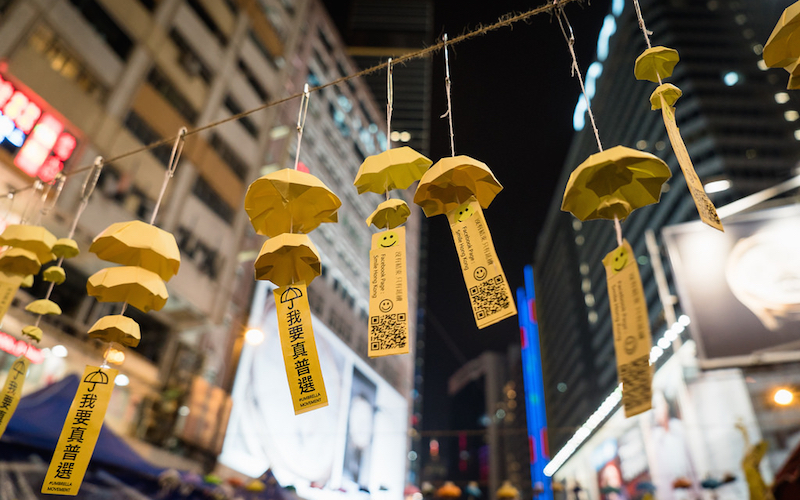
Seven Important Questions Regarding the Push for Democracy in Hong Kong
A few days ago, Dmitry Belyaev — a reporter at Metro World News (the world’s largest newspaper) had written Professor Robert Canfield (emeritus professor of anthropology at Washington University in St. Louis) who’s an expert on Central Asia, asking for an interview on the new president of Afghanistan and how the new leadership in that country could turn things around in terms of security and development. Because professor Canfield was working on a project, he referred Dmitry to me. By the time I got involved, Metro News had found someone else to comment on the Afghan issue.
My name, however, seemed to have piqued Dmitry’s curiosity so he wrote me, asking: what were my areas of interest. On learning that I was an observer of Chinese affairs, he sent me some questions concerning Hong Kong.
Do they have chances for democratic elections in 2017?
This is a complicated question. The short answer is that if the Chinese Communist leadership is smart, it will allow for free and democratic elections in 2017. The last thing China needs is instability. There is nothing that the Chinese government fears more than the touch of instability, for it has the power to disrupt economic growth and social stability.
How they can reach democratic elections (possible steps)?
Please allow me to divagate here a bit. China was supposed to honor its political commitments and allow Hong Kong citizens to elect their chief executive officer freely in 2017. I don’t know what changed.
President Xi Jinping is an autocratic, impulsive leader who probably woke up one day and decided that Hong Kong is not better than the rest of China and thus should give in to the Chinese Communist Party’s directives.
Though neither Xi nor the Committee could predict the behavior manifested on the streets of Hong Kong, otherwise they would have more calculating on how to handle this issue. Given the sensitivity of the situation and lack of information on what’s going on the grounds, it is hard to see how this event will unfold. If Xi wants to stop the situation from devolving into a state of chaos, it must give in to the demands of protesters. As things stand right now, I don’t see how the two sides can reach a compromise.
Will massive protests lead to something?
No question about it. Zheng Bijian – the former vice-president of Communist Party – used to say that the biggest threat to the survival of China was social unrest. If Xi and his associates fail to respond to the event in Hong Kong in time, other parts of China – especially, places that abound with inflation and unemployment, will soon take to the streets and demand equality, economic opportunities, and political recognition.
Why should the world care about this protests?
Hong Kong has been the bastion of democracy and freedom for over a century. It is also one of the greatest commercial centers of the world. It is for these reasons that it cannot become unstable. Many foreign players and corporations have great stakes in there, and are watching the events very closely. The world should care about what’s happening in Hong Kong because the issue at hand – should it spiral out of control – has the potential to set off social instability throughout China. Such an outcome will not only be catastrophic to the Chinese Communist Party but also to the rest of the world given that China is the world’s second largest economy and is extremely integrated with the world economy.
What is the next for Hong Kong?
We have to wait and see how this protest turns out. If the protesters get what they want, Hong Kong will continue to thrive. But if their demands for free elections are crushed, the region will eventually come under complete domination of the Chinese Communist Party.
Can China survive with independent Hong Kong (if it’ll have democratic elections)?
Yes, it can. China must decentralize for it to maintain social and political stability and its economic growth. China is a vast country; the Chinese Communist Party simply cannot have an absolute control over every inch of the country. To attempt to do so would be fatal. The more and more Chinese join the ranks of middle-class, the bigger and bigger their demands for political recognition will become. Therefore, China must initiate a series of reforms that will sail China and its people toward the seas of liberal democracy.
Can independent Hong Kong (if it’ll have democratic elections) survive without China?
Let’s consider some facts. Ever since its colonization by the British government in 1841, Hong Kong has been enjoying a free-enterprise economy and has been one of Asia’s most important trading centers. It has strong social and economic institutions, which are conducive to its strength and autonomy. In 2011, some 28 million people from around China visited Hong Kong. It remains an abode of fascination equally to the insiders and outsiders. Its robust, free economy combined with its strong infrastructures and foreign investments guarantees Hong Kong’s survival.
